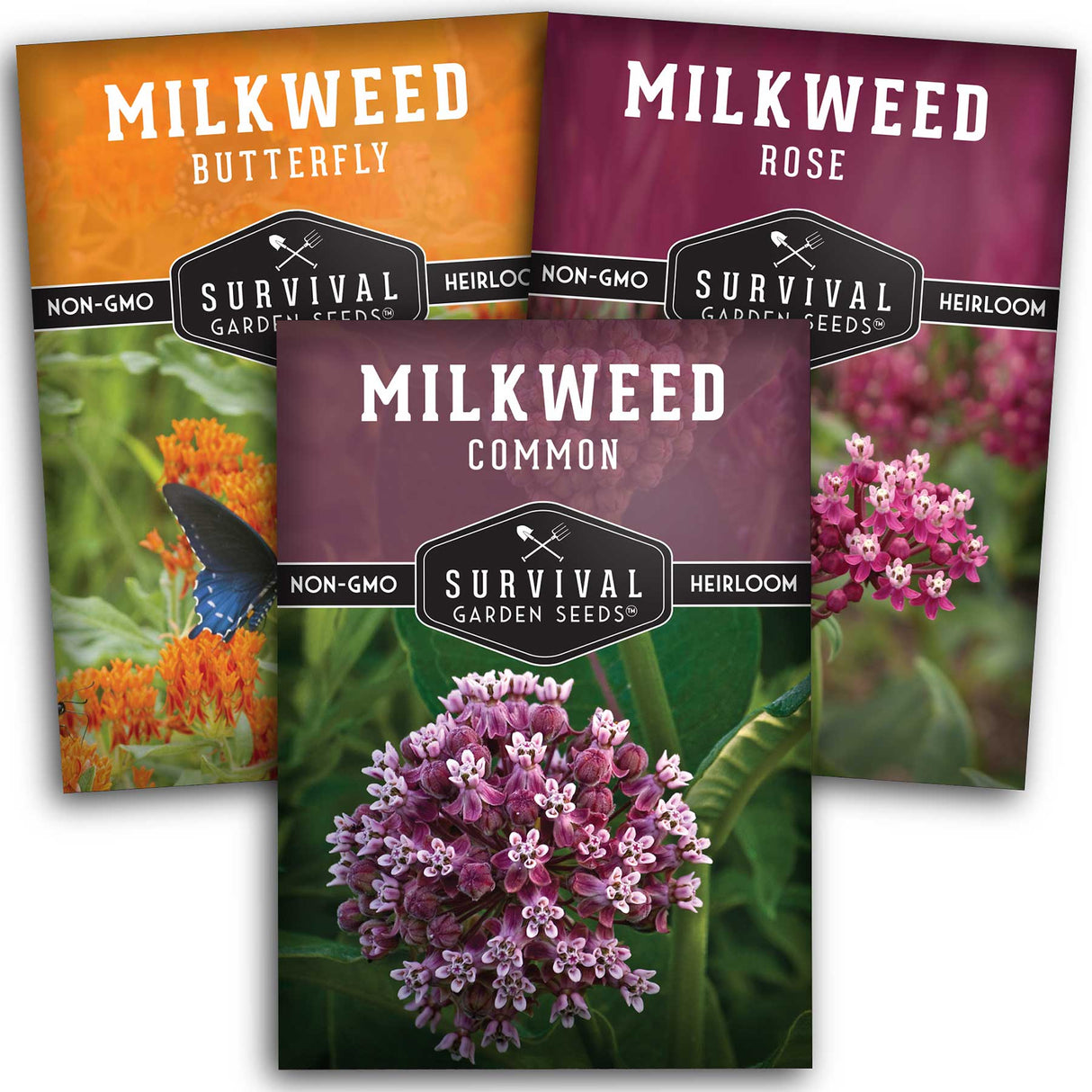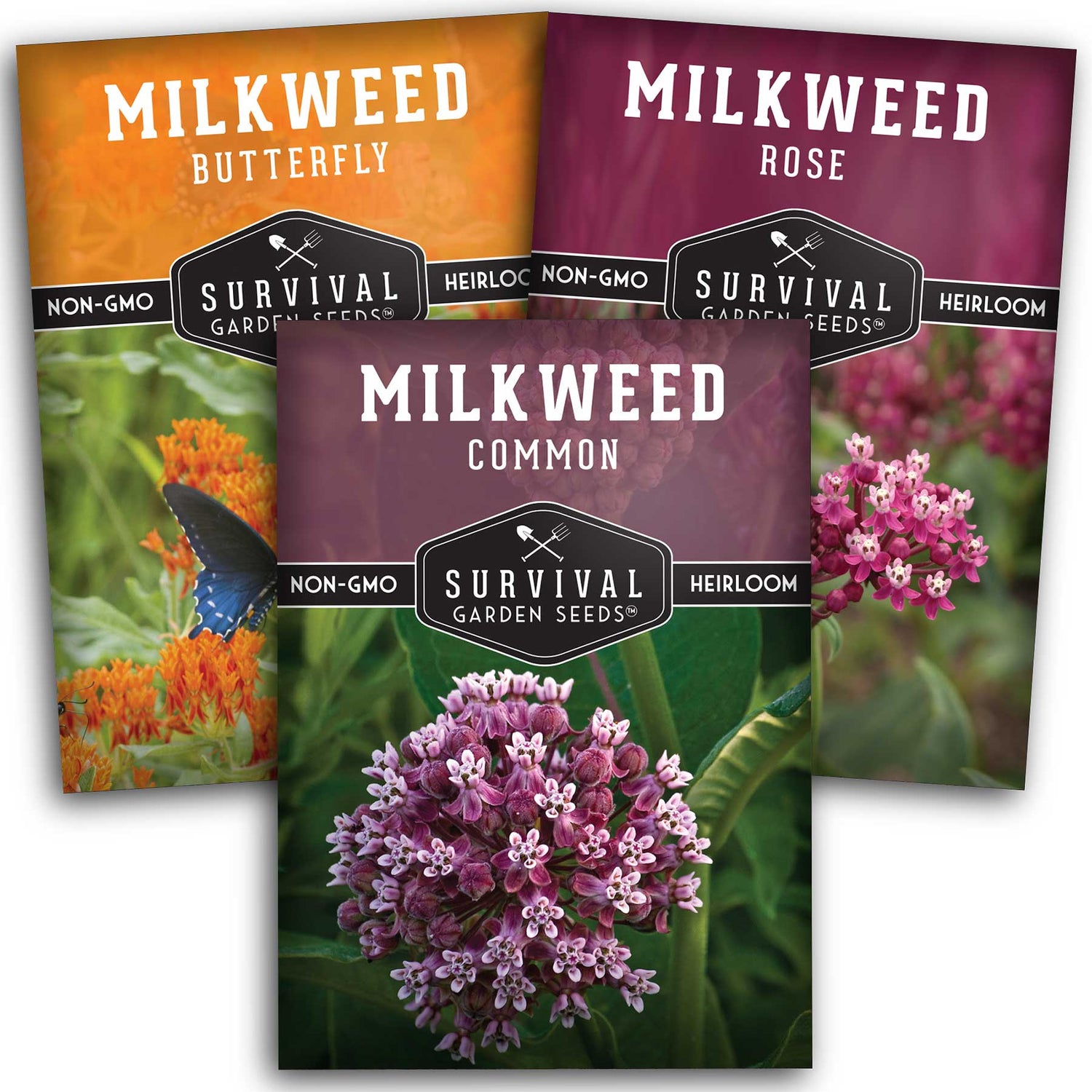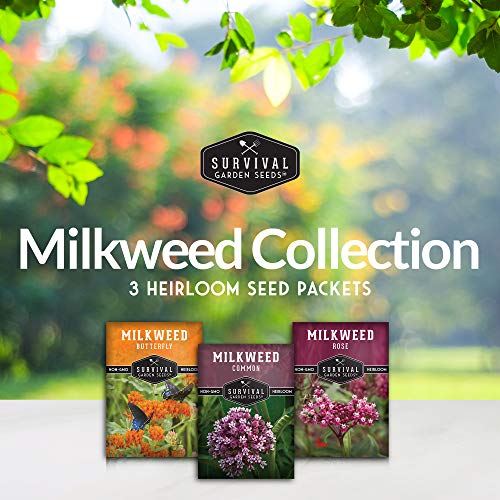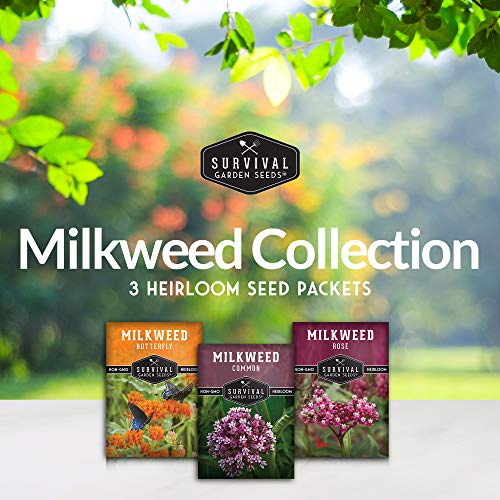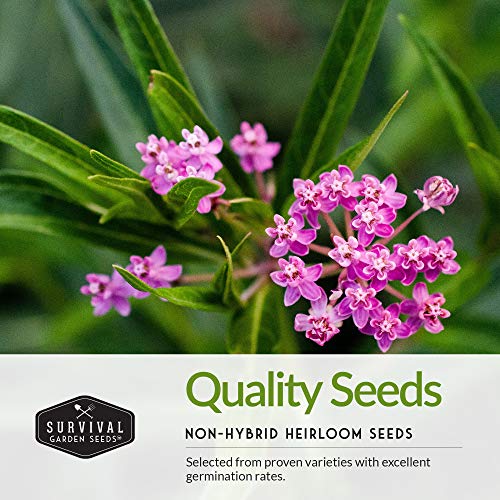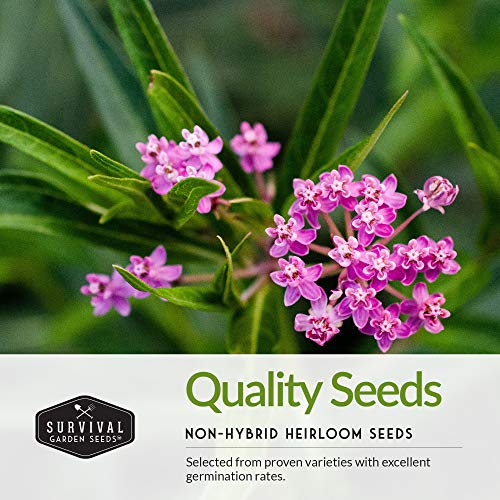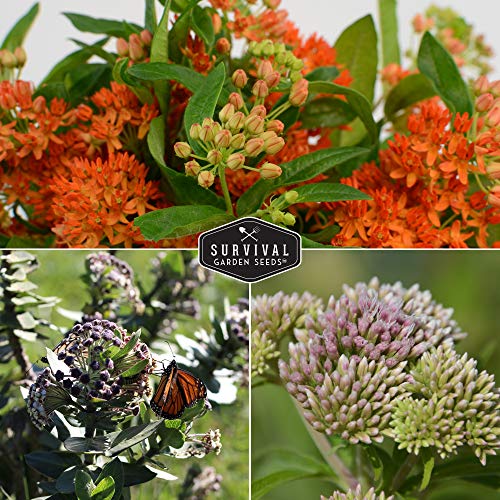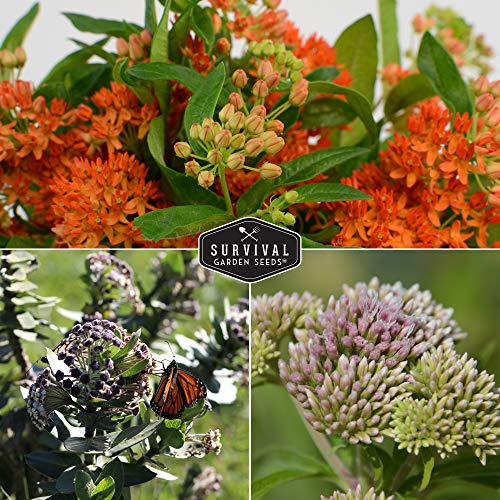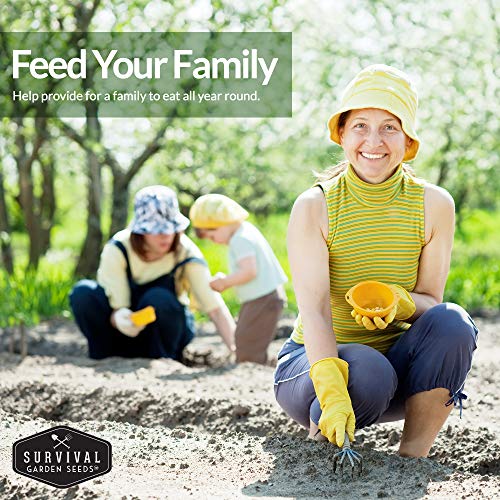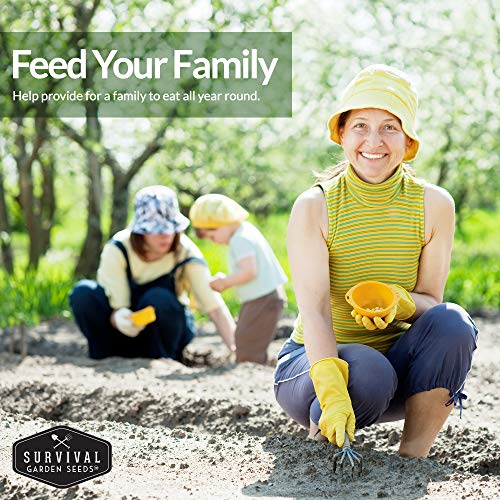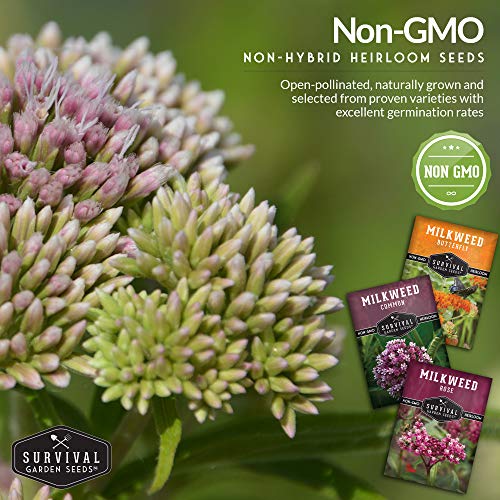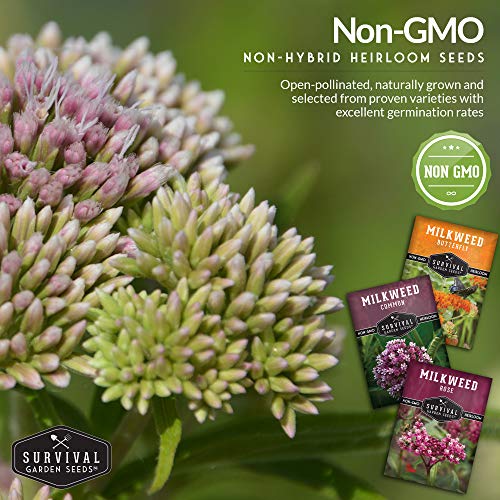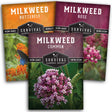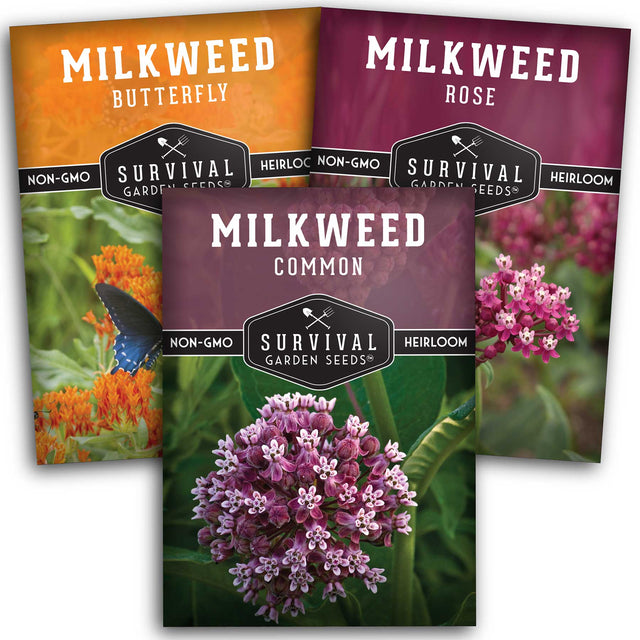Milkweed Seed Collection – Common, Butterfly, and Rose Milkweed for Monarch Support
Heirloom - Non-GMO - Reliable Germination
Milkweed Seed Collection – Common, Butterfly, and Rose Milkweed for Monarch Support is backordered and will ship as soon as it is back in stock.
Couldn't load pickup availability
Strengthen your local ecosystem with this Milkweed Seed Collection from Survival Garden Seeds. Featuring Common Milkweed, Butterfly Milkweed, and Rose (Swamp) Milkweed, this diverse perennial mix provides essential habitat and food sources for monarch butterflies and other pollinators. As milkweed habitats disappear across North America, home gardeners can play a meaningful role by planting these resilient, nectar-rich wildflowers.
Three Valuable Milkweeds for Pollinator Support:
- Butterfly Milkweed (Asclepias tuberosa) forms compact, bushy plants 12–18 inches tall with bright orange blooms. These hardy perennials offer nectar for adult butterflies and host-site foliage for monarch caterpillars.
- Common Milkweed (Asclepias syriaca) grows 24–40 inches tall with broad leaves and soft pink, star-shaped flower clusters. It is a primary nursery plant for monarch eggs, caterpillars, and chrysalises.
- Rose or Swamp Milkweed (Asclepias incarnata) reaches 24–40 inches tall and produces dusty rose, star-like flowers. Narrow, smooth leaves and long-lasting blooms attract monarchs along with bees and other beneficial insects.
Why Customers Love the Milkweed Seed Collection:
- Includes three complementary species to support monarchs through every life stage
- Colorful perennial wildflowers that return year after year
- Attracts butterflies, bees, and other vital pollinators
- Helps restore declining milkweed habitat in home gardens and community spaces
- Ideal for naturalized landscapes, borders, rain gardens, and pollinator patches
How to Grow:
For best germination, cold stratification is recommended. Place seeds on a damp paper towel, roll gently, and refrigerate for 2–3 weeks before planting. After stratification, sow seeds in full sun in well-drained soil. Keep soil evenly moist until plants are established. Once mature, milkweed tolerates a range of conditions, from garden beds to naturalized areas.
Care & Habitat Tips:
Plant milkweed in clusters to help butterflies locate the plants more easily. Combine multiple species for staggered bloom times and broader habitat value. Avoid pesticides, which can harm developing caterpillars. Allow plants to mature fully so they continue to support monarch populations year after year.
Heirloom Garden Seeds
All of our seeds are open-pollinated, non-GMO, heirloom varieties with tested germination rates
Payment & Security
Payment methods
Your payment information is processed securely. We do not store credit card details nor have access to your credit card information.
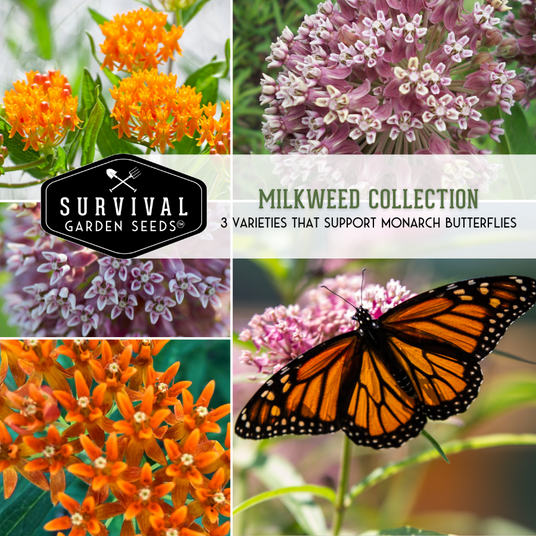
Support Monarch Butterflies
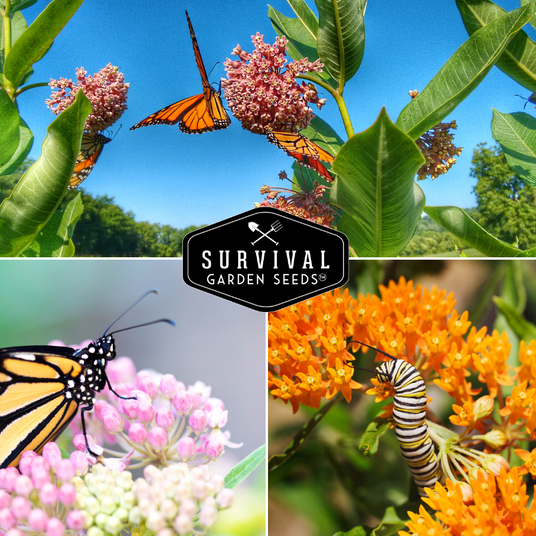
Attract Butterflies and Other Helpful Pollinators
Why Choose Survival Garden Seeds
At Survival Garden Seeds, we believe in preparing today for tomorrow’s peace of mind. That’s why we offer only heirloom, non-GMO, and untreated seeds you can trust to nourish your family and support a sustainable lifestyle. As a family-owned American company, we’re committed to providing seeds that grow strong and true—helping you cultivate health, resilience, and beauty in your garden.
Frequently Asked Questions
Are your seeds heirloom and open-pollinated?
Are your seeds heirloom and open-pollinated?
Yes. All of our seeds are heirloom, open-pollinated varieties, which means they can produce seeds that grow true to type and are suitable for seed saving.
You can learn more about open-pollinated, heirloom, and non-GMO seeds in our Survival Garden Training blog.
Are your seeds non-GMO?
Are your seeds non-GMO?
Yes. All Survival Garden Seeds are 100% non-GMO. Our seeds are open-pollinated heirloom varieties and are never genetically modified.
Are your seeds treated with chemicals?
Are your seeds treated with chemicals?
No. Our seeds are completely untreated and free from chemical coatings, fungicides, or synthetic treatments.
How do I know my seeds are fresh?
How do I know my seeds are fresh?
Every seed packet includes a packed-for date, and we germination-test each seed lot before packaging to ensure high viability.
What is the shelf life of your seeds?
What is the shelf life of your seeds?
Most seeds remain viable for 3 to 5 years or longer when stored properly in a cool, dry place away from light and moisture.
In what USDA hardiness zones can I grow your seeds?
In what USDA hardiness zones can I grow your seeds?
Our varieties are selected to grow successfully across USDA Hardiness Zones 3 through 10. Each packet includes variety-specific planting guidance and germination tips.

